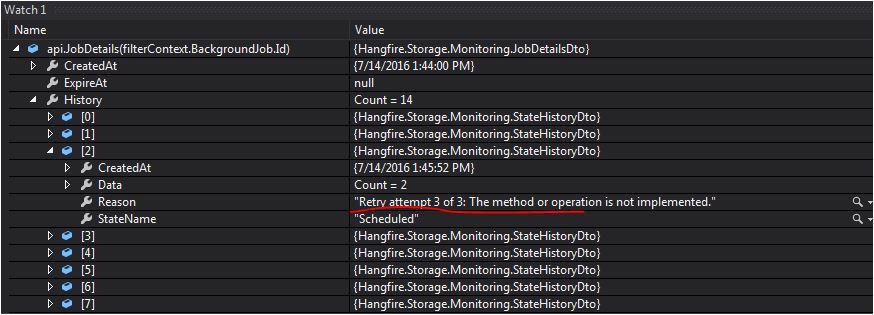(NB! This is a solution to the OP's problem. It does not answer the question "How to get the current attempt number". If that is what you want, see the accepted answer for instance)
Use a job filter and the OnStateApplied callback:
public class CleanupAfterFailureFilter : JobFilterAttribute, IServerFilter, IApplyStateFilter
{
public void OnStateApplied(ApplyStateContext context, IWriteOnlyTransaction transaction)
{
try
{
var failedState = context.NewState as FailedState;
if (failedState != null)
{
// Job has finally failed (retry attempts exceeded)
// *** DO YOUR CLEANUP HERE ***
}
}
catch (Exception)
{
// Unhandled exceptions can cause an endless loop.
// Therefore, catch and ignore them all.
// See notes below.
}
}
public void OnStateUnapplied(ApplyStateContext context, IWriteOnlyTransaction transaction)
{
// Must be implemented, but can be empty.
}
}
Add the filter directly to the job function:
[CleanupAfterFailureFilter]
public static void MyJob()
or add it globally:
GlobalJobFilters.Filters.Add(new CleanupAfterFailureFilter ());
or like this:
var options = new BackgroundJobServerOptions
{
FilterProvider = new JobFilterCollection { new CleanupAfterFailureFilter () };
};
app.UseHangfireServer(options, storage);
Or see http://docs.hangfire.io/en/latest/extensibility/using-job-filters.html for more information about job filters.
NOTE: This is based on the accepted answer: https://mcmap.net/q/650049/-how-do-i-get-the-current-attempt-number-on-a-background-job-in-hangfire
The difference is that OnStateApplied is used instead of OnStateElection, so the filter callback is invoked only after the maximum number of retries. A downside to this method is that the state transition to "failed" cannot be interrupted, but this is not needed in this case and in most scenarios where you just want to do some cleanup after a job has failed.
NOTE: Empty catch handlers are bad, because they can hide bugs and make them hard to debug in production. It is necessary here, so the callback doesn't get called repeatedly forever. You may want to log exceptions for debugging purposes. It is also advisable to reduce the risk of exceptions in a job filter. One possibility is, instead of doing the cleanup work in-place, to schedule a new background job which runs if the original job failed. Be careful to not apply the filter CleanupAfterFailureFilter to it, though. Don't register it globally, or add some extra logic to it...


PerformContextto the method though? – Harp